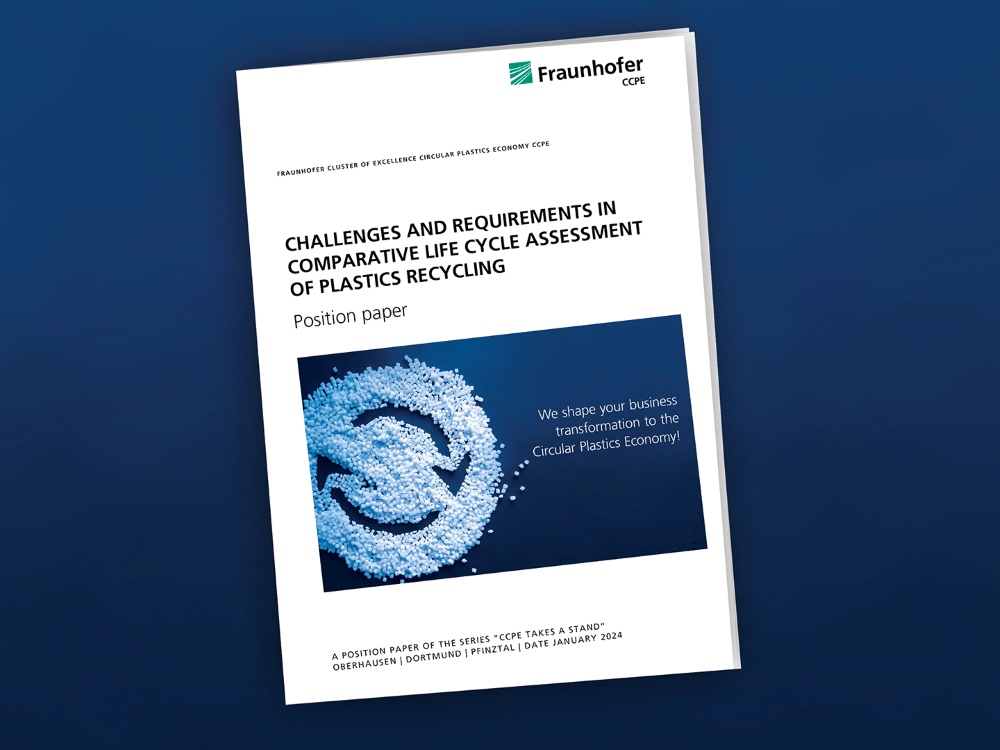Life cycle assessments often serve as a basis for decisions on the selection of environmentally friendly processes, input materials or services in plastics recycling. But what does a comparable and transparent ecological assessment that meets different requirements look like? Fraunhofer CCPE researchers have identified ten challenges and ten requirements that increase comparability and transparency in the ecological assessment of plastics recycling.
LCA studies can not only be used to evaluate products and services over their entire life cycle, but also to compare different recycling processes and recycled plastic with virgin material. The results serve as a basis for selecting the options with the lowest environmental impact. The basic comparative variable in any LCA is the functional unit. All environmental impacts are related to this parameter. However, the recycling of plastics always fulfills several functions, such as the proper treatment of waste and the provision of new resources for further products. The handling of this multifunctionality in the life cycle assessment of recycling has long been discussed without consensus.
Exchange required between science, industry and politics
With their recently published position paper “Challenges and requirements in comparative life cycle assessment of plastics recycling”, the Fraunhofer CCPE researchers aim to The project aims to illustrate precisely these challenges and requirements that exist when evaluating and comparing plastics recycling activities. The focus here is on differentiating between the functionalities of waste treatment and material provision. “With the position paper, we want to open up space for an open and transparent exchange between science, industry and politics in order to make decisions based on the ecological comparison comprehensible and resilient,” says Anna Kerps, initiator of the position paper and research associate at Fraunhofer CCPE.
The authors point out that comparative life cycle assessments also depend on various boundary conditions and assumptions. Checking for logical inconsistencies in the assumptions is a key requirement for meaningful comparisons. Inconsistent life cycle assessment studies often lead to misinterpretations. They see further challenges in dealing with the various technology routes and scales as well as the complexity of recycling routes for mixed waste. Different waste origins and collected contaminants influence the quality of the recyclates – and must be taken into account in the balance. It is also important at a methodological level to improve modeling approaches with regard to multifunctionality and system boundaries. Comparing different recycling processes and virgin material with recycled material is challenging, as they have different functionalities. Overall, there is still a lack of methodological consensus on how to obtain robust and comparable life cycle assessment results.
Picture above: Fraunhofer CCPE position paper “Challenges and requirements in comparative life cycle assessment of plastics recycling”. Image Fraunhofer CCPE

